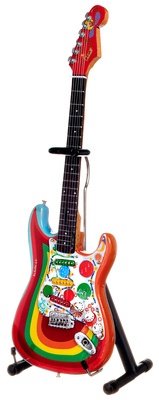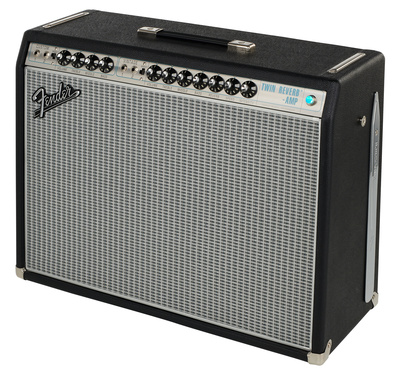Cancel Culture: Why were these all-time classics hated at release?
Cancel culture is something we see everywhere today. But surely, it wouldn’t happen to some of our favourite artists? From The Beatles to Rage Against The Machine, here’s why these songs were hated at release.
Cancel Culture: Why were these all-time classics hated at release?
Rock music has never been far away from controversy, but isn’t that kind of the point? It doesn’t take a lot to upset your enemies or even your fans. Amps too loud, lyrics too strong, hair too long. It seems you can’t win.
However, even some of the most clean-cut artists over the years have experienced some form of cancel culture. Popular opinion has been quick to divide listeners. Let’s delve into the rights and wrongs of these 5 all-time classic hits, and why they might have been disapproved of once upon a time.
Lucy In The Sky With Diamonds – The Beatles
You are currently viewing a placeholder content from YouTube. To access the actual content, click the button below. Please note that doing so will share data with third-party providers.
Our first look at cancel culture comes from The Beatles’ revolutionary 1967 album, Sgt. Pepper’s Lonely Hearts Club Band, but how could the Fab Four ever cause uproar?
It appeared that the title was far too much for a somewhat naive late-60s audience. Speculation that the title of the track was a reference to ‘LSD‘, a popular term for the hallucinogenic substance. Although not shy with such pastimes, the group insisted that the track had much more innocent foundations.
Unfortunately, the BBC banned the track. An early form of cancel culture? Despite the song being inspired by a poem that was written by John Lennon‘s son, Julian, called ‘Lucy In The Sky With Diamonds’. Oh, the poor girl with kaleidoscope eyes never meant such malice.
Moreover, throughout the recording of the track, George Harrison uses his Rocky Fender Stratocaster. Complete with custom psychedelic paintwork and a Leslie speaker. Both of which are pretty hard to get hold of today, unless you get creative:




Cancel Culture: God Save The Queen – Sex Pistols
You are currently viewing a placeholder content from YouTube. To access the actual content, click the button below. Please note that doing so will share data with third-party providers.
Secondly, we’re looking at arguably one of the Sex Pistols’ most well-known numbers. The group were never far away from unpopular opinion, in-fact they were at the very centre of it. How could a basic rock riff in A hurt?
Today, cancel culture can occur as a result of an ill-timed social media post. However, this 1977 politically punk-fuled record featured treason which was disliked very much by a then-patriotic British public. Released during the Silver Jubilee celebrations of Queen Elizabeth II, the group ended up with a total ban on the song.
Furthermore, the ban on air-time only resulted in increased popularity. In addition to radio silence, popular record shops, such as Boots and Woolworths, refused to sell it. Speculations therefore arose at the time that there was a fix in the charts, as it never officially reached the number 1 slot despite massive sales.
The opening bars feature Steve Jones on guitar, blasting out of his 1972 Fender Twin Reverb amplifier. You can’t get hold of a new unit to the same specification, but you can still get pretty close:


Killing In The Name – Rage Against The Machine
You are currently viewing a placeholder content from YouTube. To access the actual content, click the button below. Please note that doing so will share data with third-party providers.
Our next look at cancel culture doesn’t necessarily stem from the release of this RATM record. Although, in 1993 Radio 1 accidentally played the uncensored version live on air. Subsequently leading to 138 complaints.
17 years after release, the group found themselves playing live on BBC Radio 5. This was as a result of the protest rock song making it to Christmas No.1 in 2009. Naturally, the BBC requested that the strong and expletive lyrics be censored for the live broadcast. Initially, the band obliged.
However, upon reaching the final reprise of the song lead vocalist Zack de la Rocha appropriately neglected to accept the BBC’s request. Not only did listeners get plenty of explicit language, but television viewers received a healthy dose of hand gestures in addition. Looking back it’s a cool but undeniably offensive performance in the true spirit of rock and roll.
Notably of RATM and Audioslave fame, Tom Morello played on that iconic performance. You can check out his signature Stratocaster. Complete with a Floyd Rose, kill switch and a nasty attitude!


Hound Dog – Elvis Presley
You are currently viewing a placeholder content from YouTube. To access the actual content, click the button below. Please note that doing so will share data with third-party providers.
Following our list of artists that were potentially subject to cancel culture is The King of Rock and Roll, Elvis Presley. Whichever way you look at it, the 1956 track was surrounded by various forms of bad press in period.
After an initial TV broadcast in June 1956 on The Milton Berlie Show, Elvis’ dance moves were considered lucrative, inappropriate and of ill taste. Historical context has to be applied of course. A clean and rosy-cheeked post-war American audience was clearly not ready for young male to move in the way that he did.
Unfortunately, this was not the only criticism that Hound Dog received. The track was originally recorded by Big Mamma Thornton back in 1952. Being a black Blues and R&B singer, the ideology that a white American male would record the same music was deeply frowned upon. Crazy right? In 2024 we can reflect on the hilariously outdated views and expectations of the 1950s.
Relax – Frankie Goes To Hollywood
You are currently viewing a placeholder content from YouTube. To access the actual content, click the button below. Please note that doing so will share data with third-party providers.
Concluding our look at songs that were hated at release, is this cancel culture contender from Frankie Goes to Hollywood. Unlike Elvis or The Beatles, this group were intentionally badly behaved.
Surprising, I know, but the BBC banned this song following a performance on Top Of The Pops in 1984. Unsurprisingly, it was on the grounds for what was considered obscene lyrics such as, ‘Relax, don’t do it, when you want to come…’. In addition, the track was accompanied by a fairly strong music video, even by today’s standards.
Originally released in 1983, Frankie Goes To Hollywood didn’t air again with the song until late 1984 when it was re-released and had the ban lifted for a Christmas performance. Ultimately it became one of the best-selling singles of that year. Impressive considering that it had the Band-Aid single to contend with.
Plug-in time! The legendary Jupiter-8 brushes shoulders with the likes of the Yamaha DX7 in terms of Synth royalty. You can get hold of this plug-in to sample some of the sounds from Relax at home:


Cancel Culture: Forgive and Forget?
Today, we can smile and stream these controversial hits. Although, as we’ve looked at, things were quite different in their respective contexts. Or, were the BBC just trying to take away good music? What other records from musical history do you like that were initially frowned upon? Do let us know!
Video:
You are currently viewing a placeholder content from YouTube. To access the actual content, click the button below. Please note that doing so will share data with third-party providers.
Further information:
3 responses to “Cancel Culture: Why were these all-time classics hated at release?”

 3,4 / 5,0 |
3,4 / 5,0 | 









These examples feel much different from what “cancel culture” is today (or what people claim it is. I’m not on one side or the other, just observing.)
Based on cultural standards of morality in the past, a large majority of modern music would be beyond highly controversial. All the profanity and explicit sexual content in much of modern music might be too much to handle even for Elvis fans.
There’s a difference between euphemisms like “let’s rock and roll” and the types of explicit lyrics that you hear in some modern pop/rap.
Can you imagine if, instead of Elvis in a nice white suit doing the butterfly & singing “come on let’s rock”, it was lil nas twerking in booty shorts and tyga rapping about your grandma on his you-know-what?
Today’s “cancel culture” isn’t concerned with upholding a moral standard. It’s about propping up a particular ideology and attempting to suppress anything/one that disagrees.
That said, you could probably argue that past cancel culture was one side of the coin, and now we’re seeing the opposition version of cancel culture. I just feel like “cancel culture” is a modern term used to describe a modern phenomenon, but I acknowledge that I could be incorrect.
Also, I’m not sure if these songs were “hated” 🤣🤣 Even this article mentions how the controversy surrounding these songs also fueled their popularity. They were hated by a minority, but I think the overall reception was more positive. ‘Hound Dog’, according to wiki, “was simultaneously number one on the US pop, country, and R&B charts in 1956, and it topped the pop chart for 11 weeks—a record that stood for 36 years.”
That doesn’t sound like a song that was hated, at least not by the majority of the listening public.
I get the point, but “hated” seems like a strong choice of words haha
Meanwhile the UK’s tabloid press will tap your phone, looking for dirt, and that’s even if they do like you at the moment.